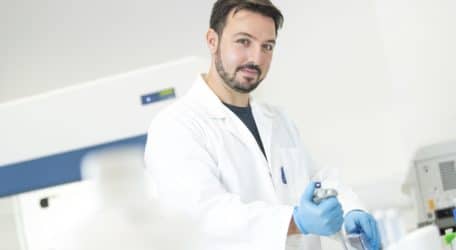
Monitoring urged to control COVID-19 spread
UK scientists have isolated a new strain of the COVID-19 and shared the information on the global database for other scientists to study.
The impact of the new strain is not yet known but it is understood to be up to 70% more highly infective. This means that, despite all government measures to slow the spread of the virus in the UK, numbers may continue to remain as they are.
According to Dr Manuele Biazzo, Scientific Director of The Bio Arte laboratories at the Life Sciences Park in San Gwann, it is crucial to intensify the sequencing activities not only to determine if the new variant is spreading all around Europe but also to share information with the global community and try to help all the scientists involved in this ‘battle’.
“It is too early to know the impact on the vaccines and the monoclonal anti-body treatments, with the vaccines due to be administered in January,” he observed.
The Bio Arte intends to continue to sequence samples of the virus to monitor its development, despite at great cost to the laboratory, and hopes that co-operation will be forthcoming from the authorities.
Dr Biazzo added: “It is a variant, a strain that has several mutations in its genome and some also concern the spike protein, responsible for binding to the host cell receptor and to manage the fusion of the viral and cellular membranes. It is not excluded that a virus will have frequent mutations. Various lineages of the coronavirus have also been identified, but they have not been associated with changes in virulence.
“Increasing transmissibility is important for public health measures. We also still do not know if this variant has other biological characteristics that deserve to be explored further. We need to understand if the variant will have what is called ‘biological success’, that is, if the mutations will make it more capable of surviving.
“Other variants in the past have disappeared. There is no scientific evidence at the time of an ineffectiveness of the vaccine. And we can’t even say that one vaccine can work better than another. By the way, we are still at genetic characterisation. Next, the scientific community should do a phenotypic study. We need to see how these affect the conformation of the spike protein. So, if they can affect it enough to happen in that part of the protein, that needs to be recognised by the vaccine-induced antibody.”
- December 22, 2020 No comments Posted in: Sports, health and fitness Tags: vaccine





